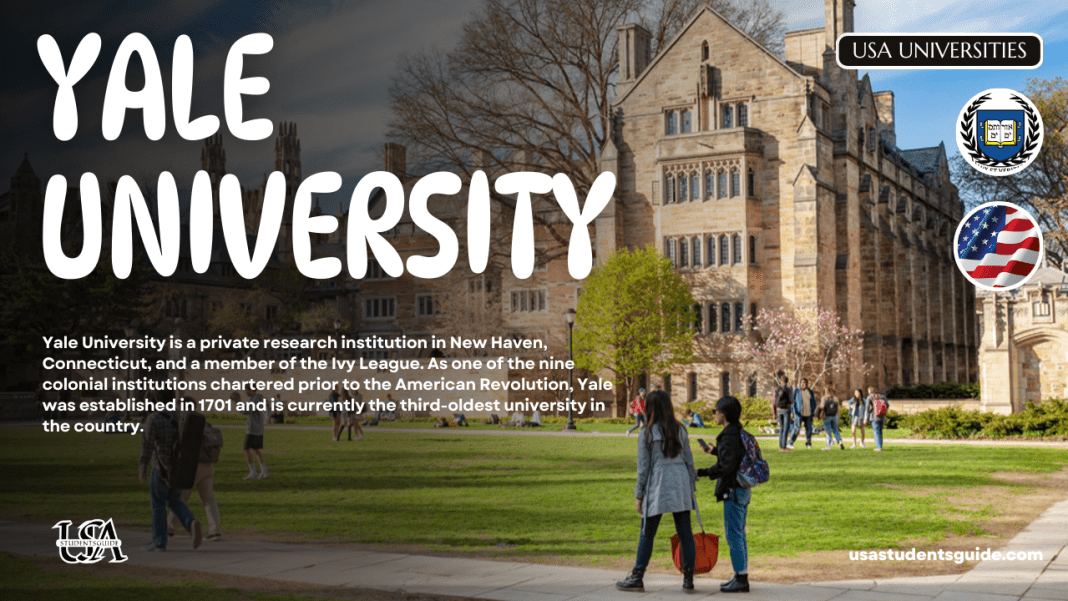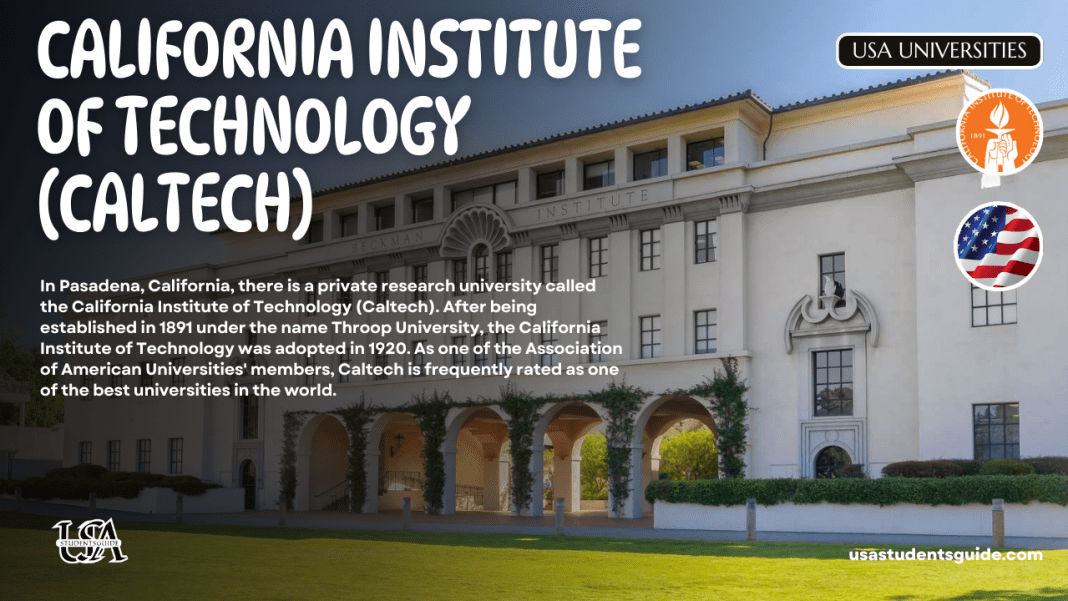Summary
- Founded: 1701
- Location: New Haven, Connecticut, USA
- Type: Private Ivy League research university
- Motto: “Lux et Veritas” (Light and Truth)
- Endowment: Approximately $42 billion (as of 2023)
- Campus Size: 345 acres
- Academic Structure: 14 schools, including:
- Yale College
- Yale Graduate School of Arts and Sciences
- Yale Law School
- Yale School of Medicine
- Yale School of Management
- Yale School of Art
- Popular Programmes: Law, Medicine, Arts, Humanities, Social Sciences
History and Background
Yale University was established in 1701 as the Collegiate School in Saybrook, Connecticut, by a group of Congregationalist ministers. The institution aimed to train clergy and lay leaders and was renamed Yale College in 1718 after a significant benefactor, Elihu Yale.
Throughout its history, Yale has evolved from a small college into a world-renowned research university. It has played a significant role in American education and has fostered a legacy of leadership and innovation. The university has also adapted over the centuries to meet the changing needs of society, becoming coeducational in 1969 and expanding its global reach.
Location and Campus
Yale University is located in New Haven, Connecticut, a city known for its vibrant cultural scene and historical significance. The university’s campus is a blend of Gothic architecture and modern buildings, set within 345 acres that include beautiful courtyards, libraries, and recreational facilities.
Key landmarks on campus include:
- Harkness Tower: A 216-foot tower that is a symbol of Yale.
- Sterling Memorial Library: An architectural masterpiece housing over 4 million volumes.
- Yale Centre for British Art: The largest collection of British art outside the UK.
Yale’s campus is not only beautiful but also rich in history, with many buildings dating back to the 18th and 19th centuries.
Academic Excellence
Yale is recognised for its rigorous academic programmes and is consistently ranked among the top universities in the world. It comprises 14 schools, with Yale College being the undergraduate division. The university offers more than 80 majors, with notable strengths in the humanities, social sciences, law, and medicine.
Yale Law School is particularly prestigious, often ranked as one of the best law schools in the country, and it has produced numerous Supreme Court justices, politicians, and leaders in various fields.
Yale faculty include numerous Nobel laureates, MacArthur Fellows, and members of the National Academies. The university emphasises research across various disciplines, fostering an environment of inquiry and intellectual growth.
Student Life and Diversity
Yale boasts a diverse student body of approximately 15,000 students, with around 6,000 undergraduates and 9,000 graduate students. The university is home to students from all 50 states and over 120 countries, reflecting a commitment to inclusivity and global representation.
Student life at Yale is vibrant, with over 500 student organisations encompassing cultural groups, academic societies, and recreational clubs. Traditions such as the Yale-Harvard football game, the freshman sing, and the annual Spring Fling enrich the campus experience.
Yale’s residential college system fosters community and belonging among students. Each undergraduate is assigned to one of 14 residential colleges, providing a supportive environment for academic and social engagement.
Admissions and Scholarships
Yale’s admissions process is highly competitive, with an acceptance rate of about 4.5% for the class of 2027. The university employs a holistic review process, considering academic performance, extracurricular involvement, personal essays, and recommendations.
Application requirements include:
- High school transcripts showcasing strong academic performance
- Standardised test scores (SAT/ACT), though Yale has adopted a test-optional policy for recent cycles
- Letters of recommendation from teachers
- Personal essays that reflect individuality and perspective
- A list of extracurricular activities and achievements
Yale is committed to affordability and provides need-blind admissions for domestic students, meaning that the university does not consider an applicant’s financial situation in the admissions process. It meets 100% of demonstrated financial need for all students, including international applicants.
Scholarships are primarily need-based, with additional resources available through various external programmes and grants.
Yale’s Contribution to Research and Innovation
Yale is a leader in research, with an annual research budget exceeding $1 billion. The university is at the forefront of advancements in multiple fields, including public health, law, environmental science, and engineering.
Yale is home to numerous research centres and institutes, including:
- Yale School of Medicine, known for groundbreaking work in biomedical research and healthcare.
- Yale Global Health Leadership Institute, focusing on global health challenges and solutions.
- Yale Institute for Network Science, researching complex systems and networks.
Yale’s collaborations with industries, government agencies, and international organisations enhance its role in driving innovation and solving global problems.
Notable Alumni
Yale University has an impressive roster of alumni who have made significant contributions to society across various fields. Notable alumni include:
- George H.W. Bush: 41st President of the United States
- Hillary Rodham Clinton: Former U.S. Secretary of State and presidential candidate
- Eli Whitney: Inventor of the cotton gin
- Meryl Streep: Acclaimed actress and multiple Academy Award winner
- Ben Sasse: U.S. Senator from Nebraska
- Harriet Beecher Stowe: Author of Uncle Tom’s Cabin
These individuals reflect Yale’s commitment to developing leaders who shape the future.
Global Impact and Rankings
Yale is consistently ranked among the top universities worldwide, often appearing in the top 10 of various national and international rankings. The university is known for its strength in research, particularly in law, medicine, the humanities, and social sciences.
Yale’s global influence extends through its alumni network, faculty research, and international collaborations. The university engages with global challenges, such as climate change, public health, and social justice, through various initiatives and partnerships.
How to Apply as an International Student
The application process for international students at Yale mirrors that of domestic students but includes some additional requirements:
- English Proficiency: Non-native speakers must submit TOEFL or IELTS scores.
- Academic Records: International transcripts need to be evaluated and translated into English.
- Financial Aid: International students are eligible for need-based financial aid, ensuring access for talented students from around the world.
Key steps for applying include:
- Completing the Common Application or Coalition Application.
- Submitting SAT/ACT scores (optional).
- Providing two letters of recommendation and a school report.
- Writing personal essays that highlight unique experiences and perspectives.
Why Yale?
Yale University offers a unique combination of rich traditions, academic excellence, and a commitment to producing leaders for the global community. Its interdisciplinary approach encourages collaboration among students and faculty across various fields, fostering innovation and critical thinking.
With its world-class faculty, expansive resources, and vibrant student life, Yale provides an environment where students can thrive intellectually and socially. The university’s location in New Haven also provides students with access to a diverse urban environment rich in culture and history.
Yale University stands as a beacon of academic excellence and innovation. Its long-standing tradition of scholarship and leadership, combined with its commitment to diversity and inclusion, makes it one of the most respected institutions globally. As Yale continues to influence education, research, and public policy, it remains a pivotal force in shaping the future for generations to come.


